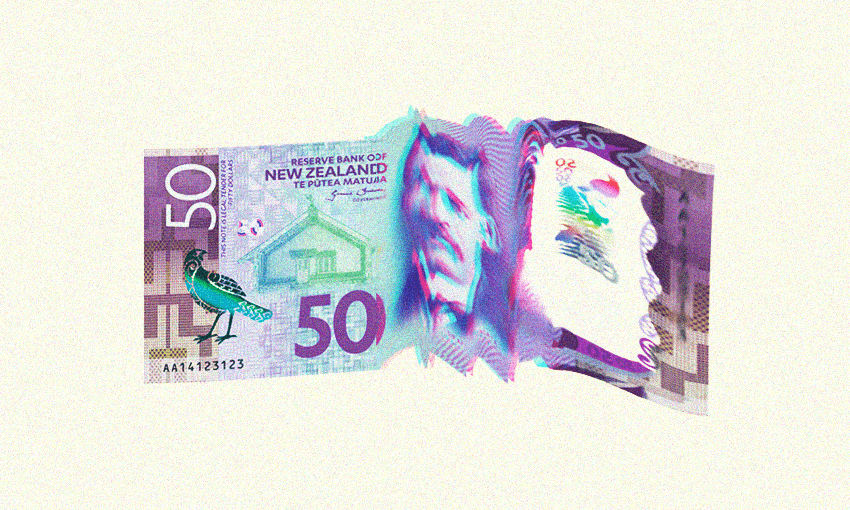Recapping the highs and lows of 12 turbulent months.
It’s officially the last week of the year and yet March 2020 feels just like yesterday. So much of our lives have been affected in strange and unexpected ways since the global pandemic was declared and our markets and economies have been no exception. So what have been some of the most defining moments? And how are things looking as we enter a brand new year?
The year opens with markets at an all-time high
At the end of 2019, the NZX 50 index was recording its best year ever – up nearly a third from where it was at almost 12 months prior. In January, the good times kept rolling with the stock market closing at record highs while that momentum was expected to drive growth in the coming year. But by the time February came around, concerns around the looming threat of a novel coronavirus began to swirl.
Covid-19 goes global
On February 24, New Zealand’s stock market had its worst day in four months. Downturns in the US, Asia and Europe soon followed as Covid-19 – now having spread far and wide outside China – began to look more and more like a global pandemic. The situation quickly worsened in the next few weeks when two major oil producers – Saudi Arabia and Russia – would go head-to-head over the price of oil.
Oil prices plummet
As travel bans began to come into effect and flights started to get cancelled, the demand for oil subsequently went rapidly down. In an effort to try and keep the price of oil high, Saudi Arabia asked other countries to join them in cutting production. Russia, however, notably refused, leading to Saudi Arabia to launch a massive production drive to swamp the market with so much oil that the price would collapse entirely and drive other producers out of business. By mid-March, oil prices hit their lowest level in 17 years.
Financial markets take a historic turn for the worse
By the final days of March, however, plummeting oil prices would be the least of the world’s worries. Globally, the Covid-19 death toll and infection rate was skyrocketing while daily cases in New Zealand quickly climbed to double figures. In an effort to try and stem community transmission, the government announced on March 23 that New Zealand would be going into a strict nationwide lockdown in 48 hours. On the same day, the NZX 50 index would tumble, with the biggest single session fall since the market crash of 1987. Similar drops were happening in stock markets across the world as all signs pointed to a staggering global recession.
The post-lockdown recovery
As redundancies, pay cuts and business closures threatened to plunge New Zealand into economic freefall in the ensuing weeks, the government announced a “once in a generation” $50 billion rescue fund to tackle “the most challenging economic conditions faced by any government since the Great Depression”. The wage subsidy scheme was extended, free trades training was launched, and benefits were increased to support some of our most vulnerable. Similar policies were announced overseas as governments and central banks sought to stimulate the economy and protect jobs and businesses.
The next few months saw many of the world’s main financial indices make a slow and steady recovery to (almost) normal. New Zealand avoided the worst of the economic fallout helped in no small part by a successful public health response: by early June, the country had zero known active cases of Covid-19 for the first time since its arrival earlier in the year.
A flood of first-time investors
While amateur investing has grown hugely over the last few years thanks to easy-to-use online platforms such as Hatch, Sharesies and the US-based Robinhood, lockdown saw this phenomenon drastically spike. Many first-timers simply found themselves with the time and willpower to finally try their hand at stock market investing, while those with a bit more experience saw the Covid-induced downturn over lockdown as the prime opportunity to snap up bargain shares.
On Hatch, for example, more than 20,000 New Zealanders signed up to the platform over lockdown while the company’s year in review found the number of investors had grown by an average of 17% per month. But the most striking figure? More than $380 million were invested through the platform this year – up a whopping 726% from 2019.
The price of houses, gold and crypto go up
But it’s not all about stock market investments – all sorts of assets saw their prices skyrocket this year. House prices are the obvious one, especially in New Zealand with border closures and rock-bottom interest rates driving an insatiable demand for real estate nationwide. But with a serious shortage of houses to go around, soaring prices haven’t necessarily been a good thing as first home buyers increasingly miss out while the gap between those with and without wealth continues to widen.
Another asset that performed well this year was gold, which hit record highs in August, as many sought out a “safe” investment in these uncertain times. With that said, several observers have touted the reputedly volatile Bitcoin as the best performing asset of 2020 with some even describing it as “digital gold”.
Finally, a vaccine
Despite being a mostly dire year for the global economy, 2020 is ending on a positive note: countries have started rolling out Covid-19 vaccines, Joe Biden’s election to the US presidency signals good news for trade, and Christmas is giving many hard-hit retailers a much-needed boost. While the virus continues to wreak havoc in many countries such as the UK where a new, more infectious strain of Covid is set to have emerged, New Zealand is ending the year in pretty good shape with our economy officially out of recession and a summer of almost unparalleled freedom on the cards. Despite the odds, we’re ending 2020 doing OK.
